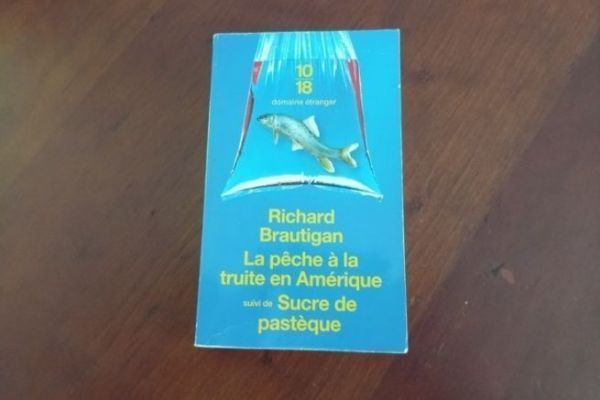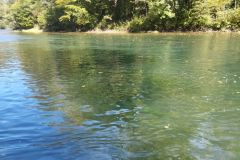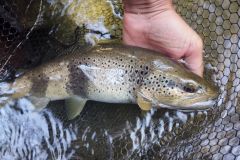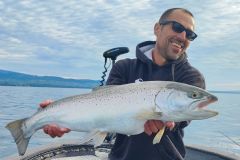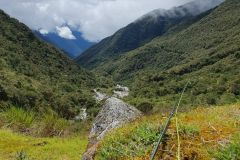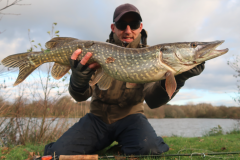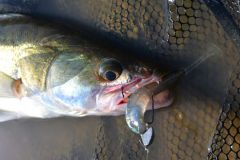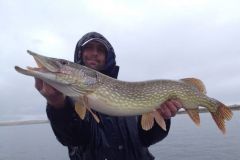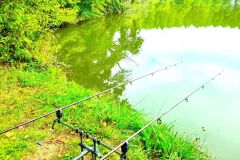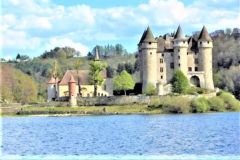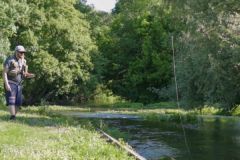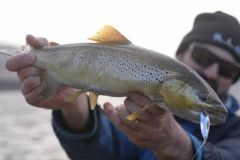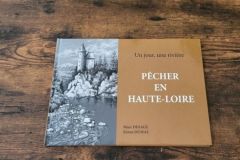The beat generation
In the United States in the 60s, San Francisco was the center of hippie protest and the "beat generation". This expression was coined by Jack Kerouac, author of Sur la route. The beat generation was a literary protest movement whose early adherents refused to live within the norm. They took to the road to discover America's wide-open spaces and find themselves in nature. Beat or hobo referred to the vagabonds of the late nineteenth century who used freight trains to get around, but beat also meant bliss, and this generation, of which Brautigan was also a member, was referred to as the celestial tramps.
Richard Brautigan (1935-1984) is undoubtedly one of the most eccentric writers of the hippie generation. The original title is Trout fishing in america, first published in the USA in 1967, it was translated into French by Marc Chénétier in 1978. Trout fishing in america sold over 2 million copies: "Some of his readers sent him trout. They were like a totem," reads the back cover.
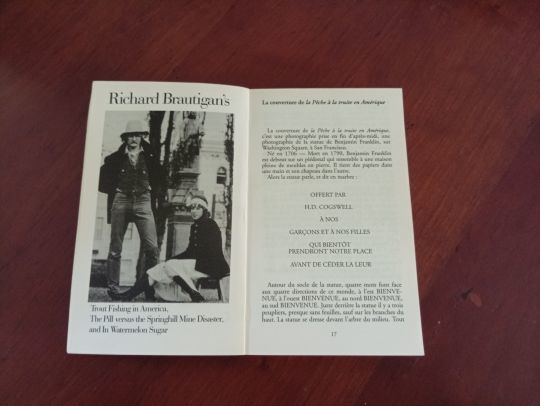
Trout fishing... or almost
Of course, the book is about trout fishing, but not always, or let's say that sometimes trout fishing is ... a living being, as in the chapter "the last time I saw trout fishing" or "trout fishing in the street of eternity"...
Let's say it right away, the author's stories are really offbeat, and sometimes we don't quite understand what he's getting at. It's about this break between a rather old literature and that of the beat generation, outside literary norms, sometimes too much so. But this doesn't leave American and French audiences indifferent. Nevertheless, this poet is well-versed in works written about salmon fishing in America. Indeed, in the chapter "Death of a Trout by Port", a story in which he recounts how he kills a trout by making it swallow Port. He also lists a long list of American fishing books, including Zane Gray, Charles Bradford and Roderick L Haig-Brown...
Between dreams and more or less real stories, Trout Fishing in America is a book that is also a return to nature advocated by the hippie movement of the Seventies. Brautigan himself lived in Pine Creek, Montana, to be closer to his rivers and to nature in general.
Sometimes, the texts are a little incomprehensible, as shown by this passage from the chapter entitled "The Humpback Trout": "The torrent was like 12845 telephone booths [...] Sometimes, when I went fishing there, I had the feeling of being a telephone repairman, without having the allure of one. [...] The trout in those telephone booths were very brave. There were lots of little cutthroat trout, between fifteen and twenty centimeters long, individual portions for local communications."
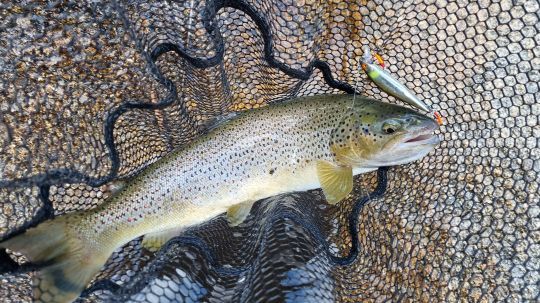
Between dream and reality
Another "magical" passage is dedicated to the sale of a brook. In one of his many stories, he recalls the sale of a trout stream in a store, a stream sold by the measure, sold with trout of course, with waterfalls and meadows sold separately. Yes, Brautigan is a completely "mad" author, and that's what makes him so charming. Always between reality and fantasy. A fine balance between reality and fantasy, a touch of humor, irony and a few wacky remarks, that's the explosive cocktail Brautigan offers in this book. The wacky author is torn between childhood memories and hallucinations, in which trout fishing is depicted in various guises.
Like all the poets of this beatnik generation, Brautigan rejected the puritanical American culture, preferring to erect with his book a counter-culture aimed at undermining the foundations of a conservative America. So, in these times of crisis, I think it's essential to discover this new fishing philosophy. Don't forget to pack Trout Fishing in America for the few weeks of vacation you have left.

 /
/ 